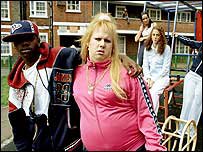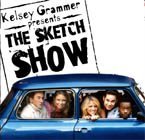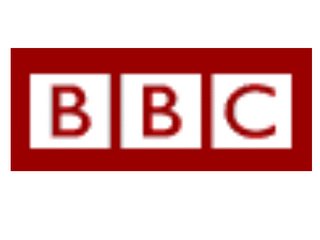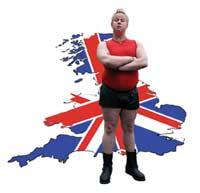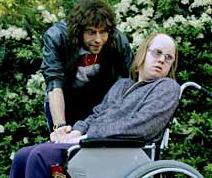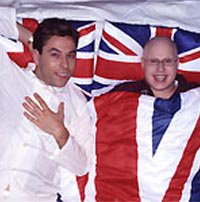
'Little Britain' is a show that very much entertains, however the show's values and ideologies are very much based on the creators and producers own beliefs about British society. The show is actually a way of letting the creators, David Walliams and Matt Lucas, express their views to the public through these means of communication. From the representations of the different characters, the audience is able to see what the average prson thinks about about certain people and groups as a way of communicating and identifying with the audience even if they are coming from a stereotypical point of viw, it's giving the audience what they expect.
The sketches of these portrayed characters and stereotypes all have hidden values and beliefs about them from the creators point of view more than likely. E.g. the 'fat fighters' sketches include a lot of offensive comments from the leading lady Margery (Matt Lucas) including "you fat bastard" or "ow, they're like tits aren't they". All quite funny if its not aimed at you as the viewer but for some viewers who may suffer with weight problems I'm sure does nothing for their self- motivation. The beliefs of the sketch if we consider these factors is that the makers assume that over weight people have only themselves to blame and reinforces that belief in what they say, how it's said and even the narrator Tom Baker has his pop. The sketch makes it ok to laugh at the obese but then again they make it ok to laugh at may different groups of people, which in turn makes it a bit easier for viewers to take in knowing that their particular group isn't the butt of all the jokes, but that everyone is being made fun of.
